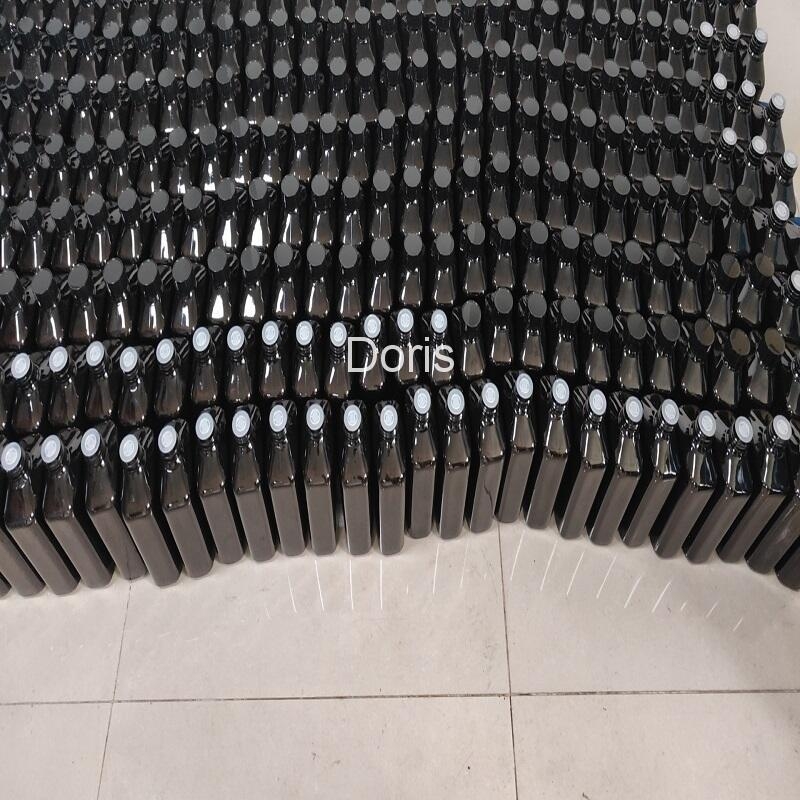-
Categories
-
Pharmaceutical Intermediates
-
Active Pharmaceutical Ingredients
-
Food Additives
- Industrial Coatings
- Agrochemicals
- Dyes and Pigments
- Surfactant
- Flavors and Fragrances
- Chemical Reagents
- Catalyst and Auxiliary
- Natural Products
- Inorganic Chemistry
-
Organic Chemistry
-
Biochemical Engineering
- Analytical Chemistry
- Cosmetic Ingredient
-
Pharmaceutical Intermediates
Promotion
ECHEMI Mall
Wholesale
Weekly Price
Exhibition
News
-
Trade Service
Have you heard recently that the European Commission has drafted a new draft regulation that plans to ban several commonly used pesticides in Europe
? Among them, it is clearly proposed that the decree completely prohibits pesticides "highly harmful to bees".
The draft may be submitted to a vote in May this year, and if approved, it will take effect within a few months
.
The insecticides "highly harmful to bees" mentioned here directly refer to neonicotinoid insecticides, which immediately pushed the issue of the use of neonicotinoid insecticides to the forefront
.
In 2013, the European Union announced the temporary ban on the use of three major neonicotinoid pesticides on certain crops, and the new draft regulations prohibit the use of neonicotinoid pesticides in all field crops except for greenhouse crops
.
At the end of 2016, officials from Health Canada stated that its federal pesticide regulator planned to phase out a controversial pesticide product, imidacloprid
.
Recently, French legislators passed a fierce debate and passed a plan that is stricter than the EU's restrictive measures to completely ban neonicotinoid pesticides that are said to be harmful to bees
.
However, the draft to ban neonicotinoid pesticides still needs to be passed by the French Senate in a final vote in the National Assembly held in the middle of the year, and the French Senate voted against it in a previous hearing
.
Regarding the ban on neonicotinoid pesticides, farmers and pesticide manufacturers are opposed to beekeepers and green groups
.
So, for neonicotinoids, whether they should be banned, there are still many questions
.
Question 1: Banning will lead to a decline in both production and economic income.
The Berlin scientific consulting company HFFA, through a study of 17 independent studies and academic papers, found that the average yield of rapeseed in the EU has declined since the EU banned neonicotinoids in December 2013 In some areas, the decline was more than 20%, the total output loss was about 1 million tons, and the economic loss was about 400 million euros
.
Question 2: There is no corresponding scientific evaluation for the ban.
The French Pesticide Industry Association (UIPP) pointed out that there is no new scientific evidence to prove that banning neonicotinoid pesticides will be an effective protection for pollinating insects.
.
This ban is contrary to EU law and will weaken the competitiveness of French agriculture and accelerate the distortion of France’s competition with other EU countries
.
? Among them, it is clearly proposed that the decree completely prohibits pesticides "highly harmful to bees".
The draft may be submitted to a vote in May this year, and if approved, it will take effect within a few months
.
The insecticides "highly harmful to bees" mentioned here directly refer to neonicotinoid insecticides, which immediately pushed the issue of the use of neonicotinoid insecticides to the forefront
.
In 2013, the European Union announced the temporary ban on the use of three major neonicotinoid pesticides on certain crops, and the new draft regulations prohibit the use of neonicotinoid pesticides in all field crops except for greenhouse crops
.
At the end of 2016, officials from Health Canada stated that its federal pesticide regulator planned to phase out a controversial pesticide product, imidacloprid
.
Recently, French legislators passed a fierce debate and passed a plan that is stricter than the EU's restrictive measures to completely ban neonicotinoid pesticides that are said to be harmful to bees
.
However, the draft to ban neonicotinoid pesticides still needs to be passed by the French Senate in a final vote in the National Assembly held in the middle of the year, and the French Senate voted against it in a previous hearing
.
Regarding the ban on neonicotinoid pesticides, farmers and pesticide manufacturers are opposed to beekeepers and green groups
.
So, for neonicotinoids, whether they should be banned, there are still many questions
.
Question 1: Banning will lead to a decline in both production and economic income.
The Berlin scientific consulting company HFFA, through a study of 17 independent studies and academic papers, found that the average yield of rapeseed in the EU has declined since the EU banned neonicotinoids in December 2013 In some areas, the decline was more than 20%, the total output loss was about 1 million tons, and the economic loss was about 400 million euros
.
Question 2: There is no corresponding scientific evaluation for the ban.
The French Pesticide Industry Association (UIPP) pointed out that there is no new scientific evidence to prove that banning neonicotinoid pesticides will be an effective protection for pollinating insects.
.
This ban is contrary to EU law and will weaken the competitiveness of French agriculture and accelerate the distortion of France’s competition with other EU countries
.







